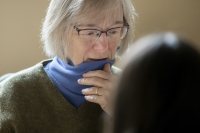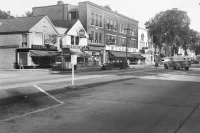
Charles A. Dana Professor of English and Africana Therí Pickens’ first volume of poetry, What Had Happened Was, published by Duke University Press in March, was the subject of a two-page spread in Down East magazine’s April issue. Headlined “Well Versed,” the article included an interview with Pickens and a reprint of one of the poems in the collection, “The Amateur Gardener Considers a Time of Death.”
Pickens has had a busy spring. In conjunction with National Poetry Month, she appeared on Maine Public’s Maine Calling in April, as part of a panel of Maine poets discussing “New Directions” in poetry and visited several universities to give talks and readings, including Rutgers (as the Clement A. Price humanities scholar in residence), the University of North Carolina Charlotte, and the University of Virginia. On April 3, she was celebrated by faculty, staff, and students at a book party in Commons. She also recently gave interviews to the online publication The Adroit Journal and The Cafe Review.
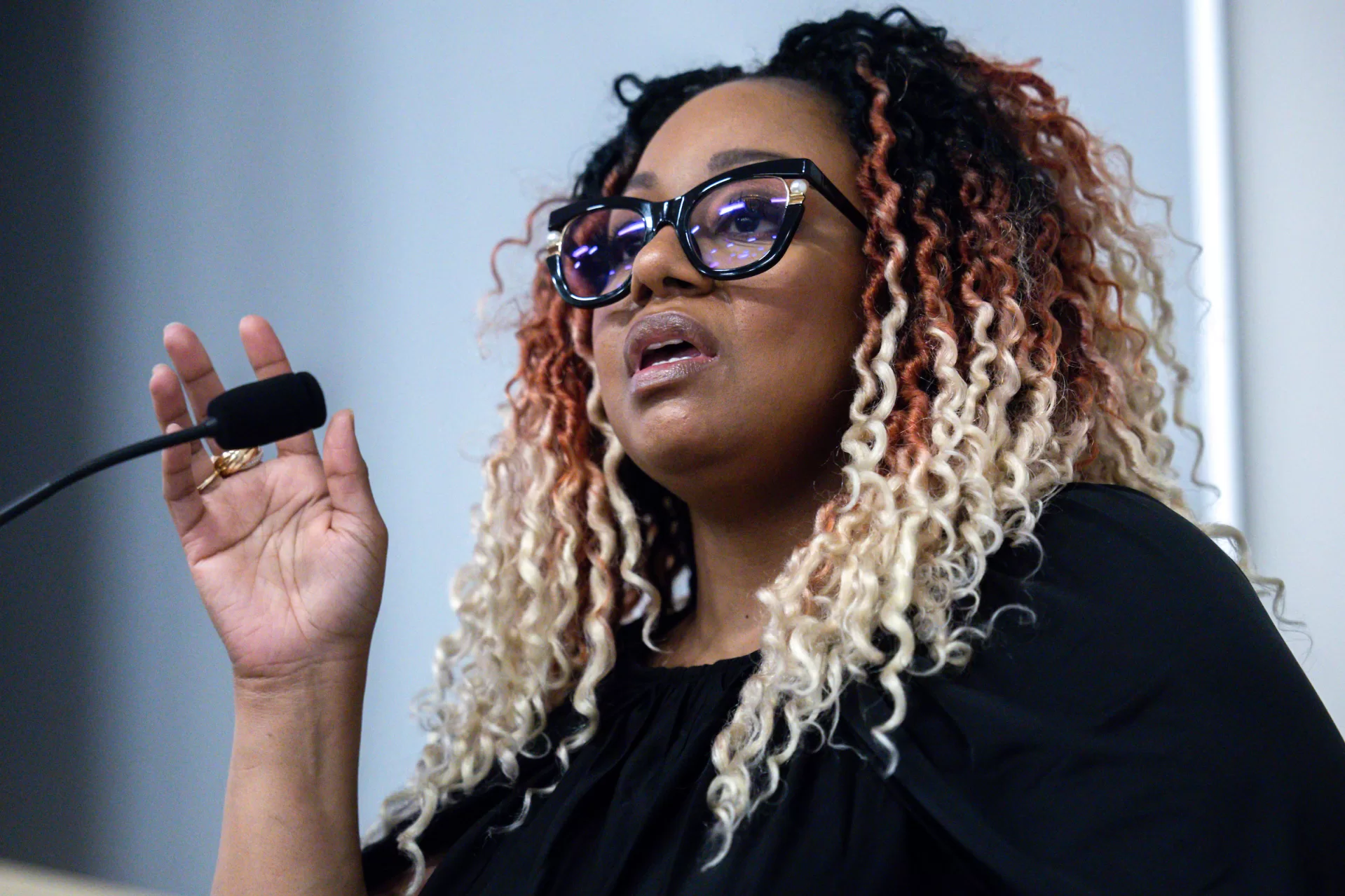
In the Down East story, journalist Michaela Cavallaro reports that Pickens’ debut collection “showcases a distinctive knack for synthesizing diverse influences.”
She writes: “Pickens weaves together her academic training, her pop-culture interests, and her studies and experience of disability, among many other elements, in more than three dozen poems that are as readable as they are formally and linguistically inventive. Pickens traces her development as a poet all the way back to her New Jersey childhood (as a 5-year-old, she won a citywide writing contest for first to fourth graders on the subject of ‘Why I’m Proud to Be an African American’).”
The Maine Calling panel included Maya Williams, poet laureate of Portland, 2021–24, and Rose Lane, author of four poetry collections.
Pickens told listeners what prompts her to start writing a poem:
“There’s usually some sort of music, some sort of thought, some sort of observation that scratches my temple from the inside of my head, so to say, this urgent thing that’s begging to be let out on paper. I tend to think of myself a little bit in the vein of observational comedians. They see things and observe them and observe their absurdity and then tell you about it…. I’m always really gratified when I find an audience, in part because audiences can come from all over. Matthew Zapruder once said that he has to trust that, because he’s having a human experience, other people also having human experiences will find his work when they need it. And so I think I operate in that trust as well.”
LISTEN: Hear Therí Alyce Pickens read her poem If Lyndon B. Johnson hadn’t had his heart attack from the collection What Had Happened Was. Copyright Duke University Press, 2025
At the end of the Maine Calling show, a caller asked if the panelists had any advice for aspiring poets looking to publish their work. Pickens weighed in with this advice, referencing one of her faculty colleagues, Jessica Anthony ’96, a senior lecturer in English and a National Book Award–nominated novelist:
“One of the other writers here at Bates, Jess Anthony, talked about poetry as a kind of punishing space because when you submit something, you don’t really get feedback,” Pickens said. “You get, ‘Oh, it doesn’t work for us.’ And so you see enough of that, you wonder whether or not the poems work for anybody. So publishing poetry is quite difficult for that reason. But Maine Writers and Publishers Alliance gives us a sense of community in Maine and a space to think through things with each other.”
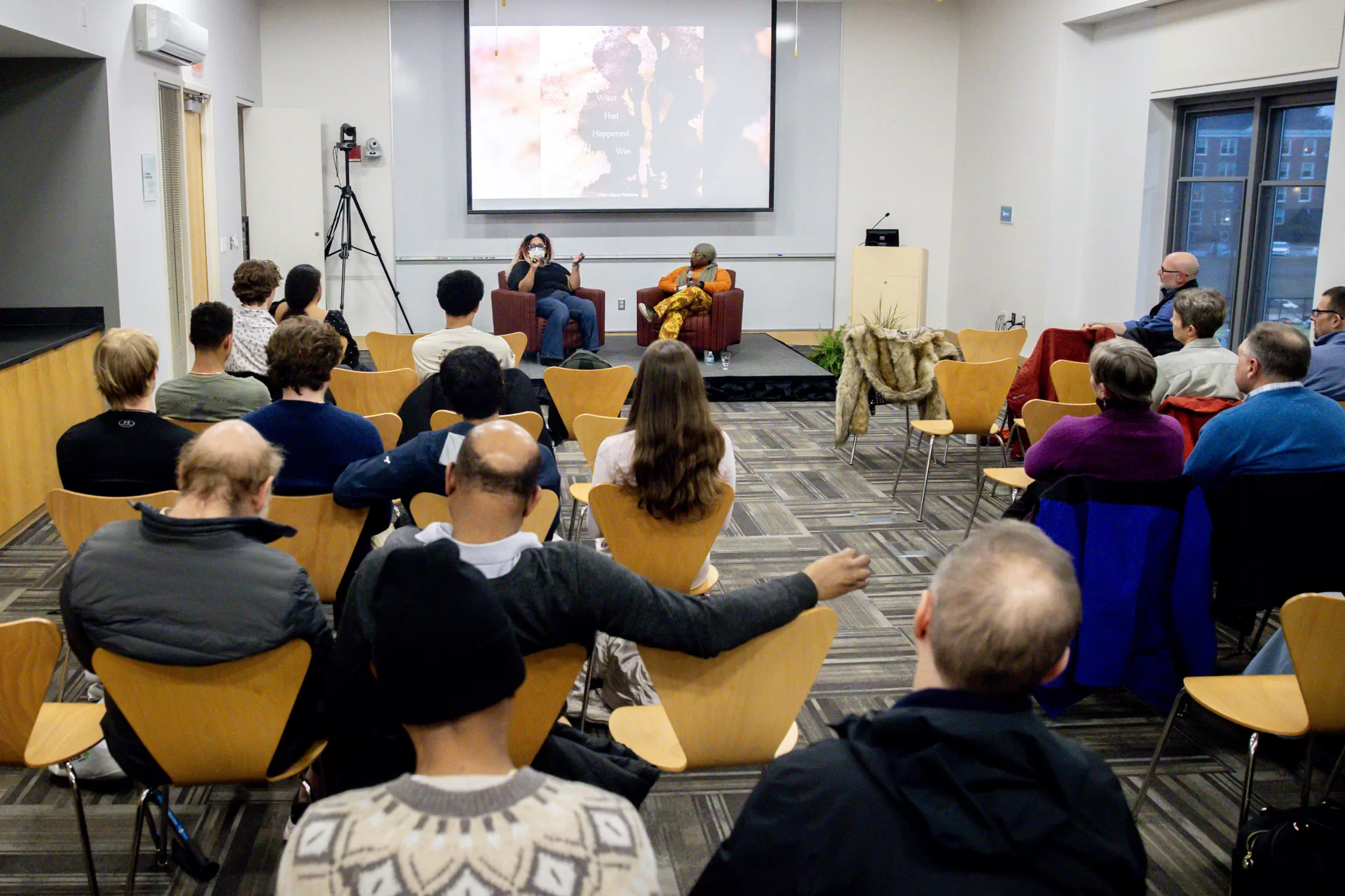
At the campus gathering April 3, Pickens read a selection of poems from What Had Happened Was and was interviewed by moderator Samaa Abdurraqib, Ph.D., executive director of the Maine Humanities Council.
The book party also offered an opportunity to recognize Pickens’ recent appointment to an endowed professorship. In November 2024 the college announced she would serve as Charles A. Dana Professor of English and Africana from 2024 through 2034.
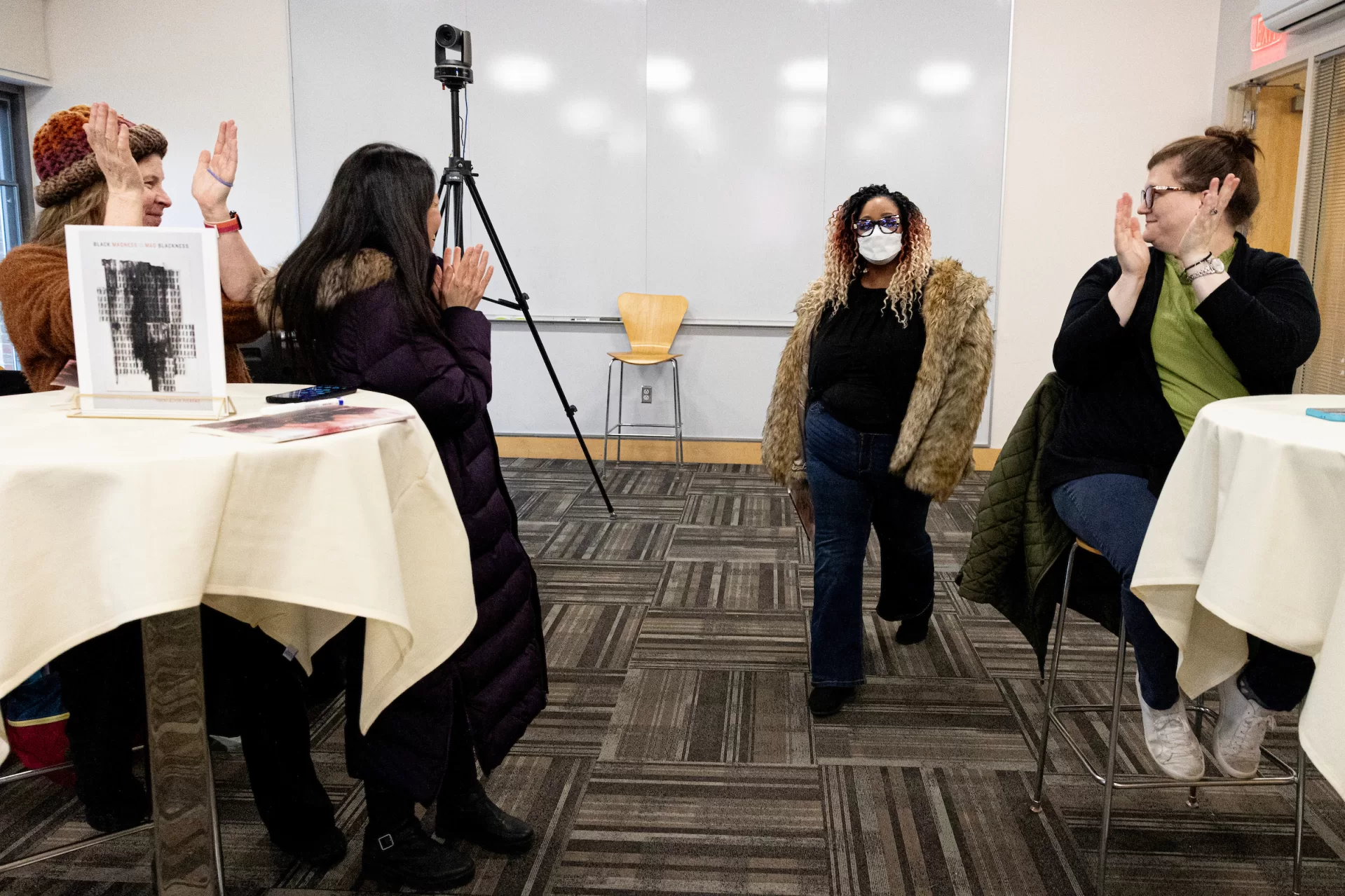
Malcolm Hill, vice president for academic affairs and dean of the faculty, introduced Pickens at the packed gathering — which included an airing of pre-recorded messages of congratulations, accolades and gratitude from former colleagues across the country and many Bates graduates. Hill reminded the audience that the Dana Professorship is the first endowed chair established at Bates and recognizes professional excellence from professors working in any discipline.
“Dr. Pickens’ intersectional pathbreaking scholarship and pedagogy traverses the fields of race, identity and disability,” Hill said, and went on to describe her writing across mediums as “inventive, theoretically, and aesthetically attuned. She provides conceptual grammars and vocabularies that are of the present and for the future.”
“I would love it if folks could find something in the collection that resonated” — Therí Alyce Pickens
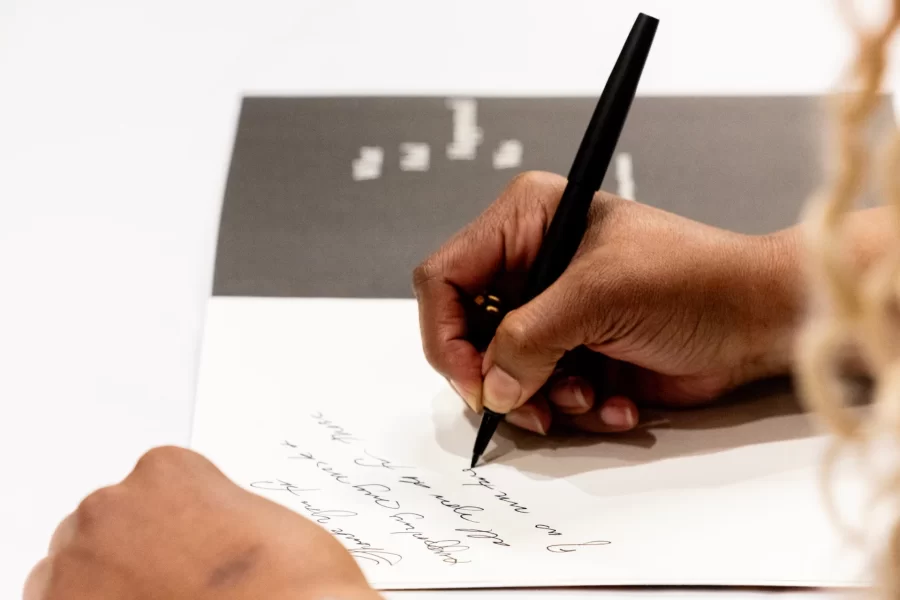
In March, Pickens described her hopes and aspirations for the collection in an in-depth conversation with poet Nefertiti Asanti in The Adroit Journal.
“I would love it if folks could find something in the collection that resonated and for folks looking to the collection, maybe for comfort?” Pickens told Asanti. “Folks looking to be read, in that, ‘Black, queer reading is fundamental’ kind of way, they could also find that. I don’t want the focus to be on how I, as a poet, put something or anything really autobiographical into the text. But rather that it’s a celebration of Black linguistic prowess and people can find something in it that speaks to them.”
For The Cafe Review piece, Pickens was interviewed by a former Bates colleague, Jefferson Navicky, who asked about her “wide-ranging and masterful” use of poetic forms, including the villanelle, the haibun, and the sonnet. Pickens offered the insight that she uses these forms almost as guideposts, because even though she has been writing poetry since the age of 8, she still feels “like a beginning poet.”
“So when I started practicing my craft in earnest in 2017, forms seemed like the best way to get into poetry…. They offer some degree of constraint, rules to follow, so that I don’t get too lost. What began as a way to practice — and shout out to Kiese Laymon, who said, ‘We’re not good enough to not practice’ — became more attractive once I saw other folks achieving loveliness with them.”
Faculty Featured
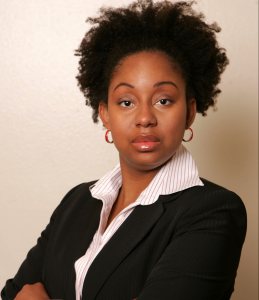
Therí Pickens
Charles A. Dana Professor of English and Africana

